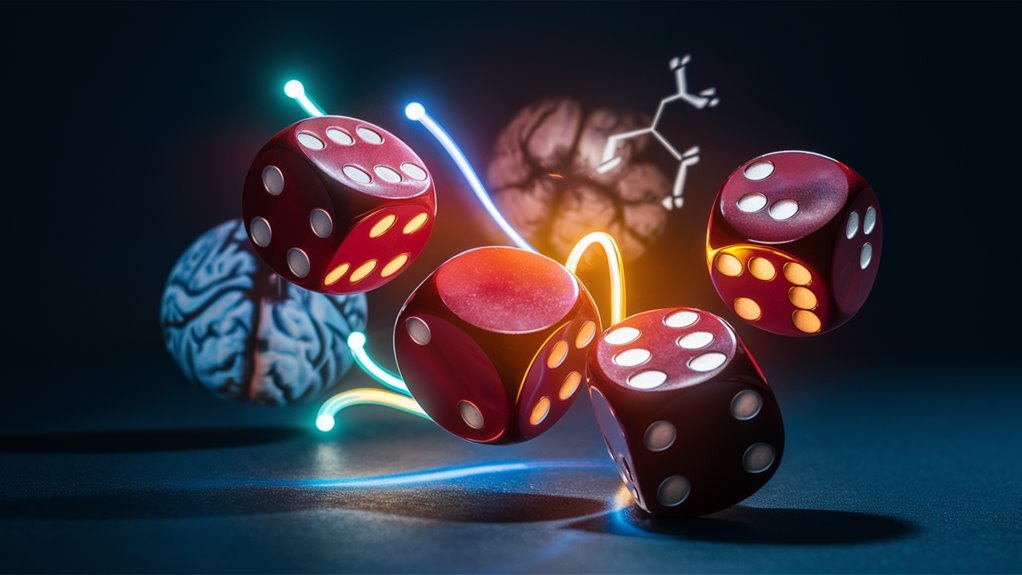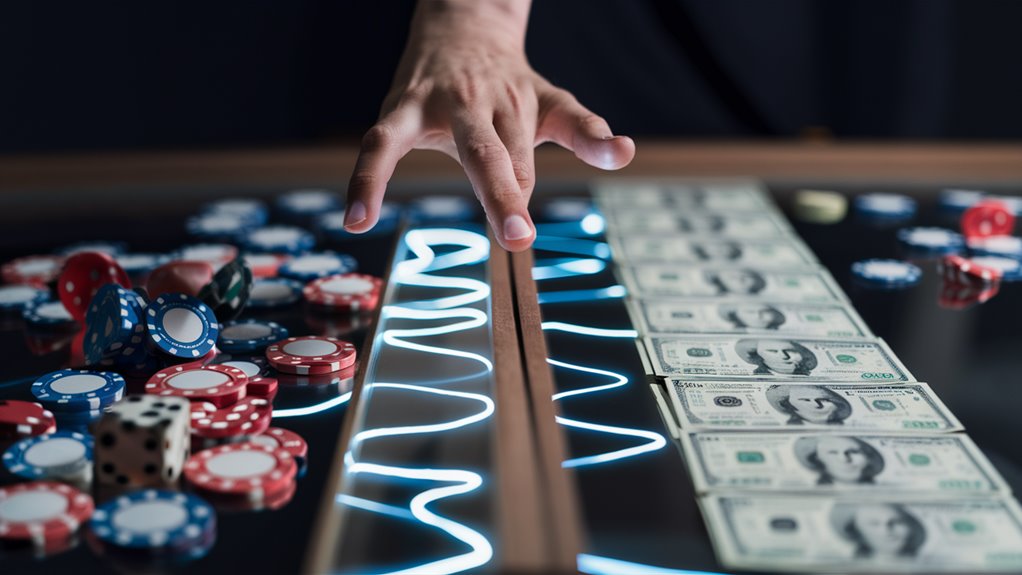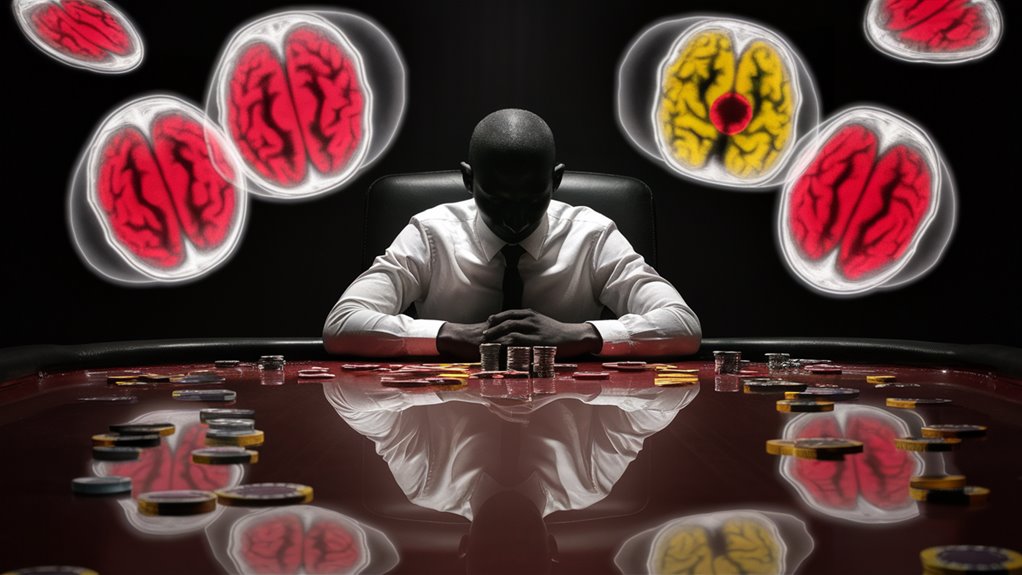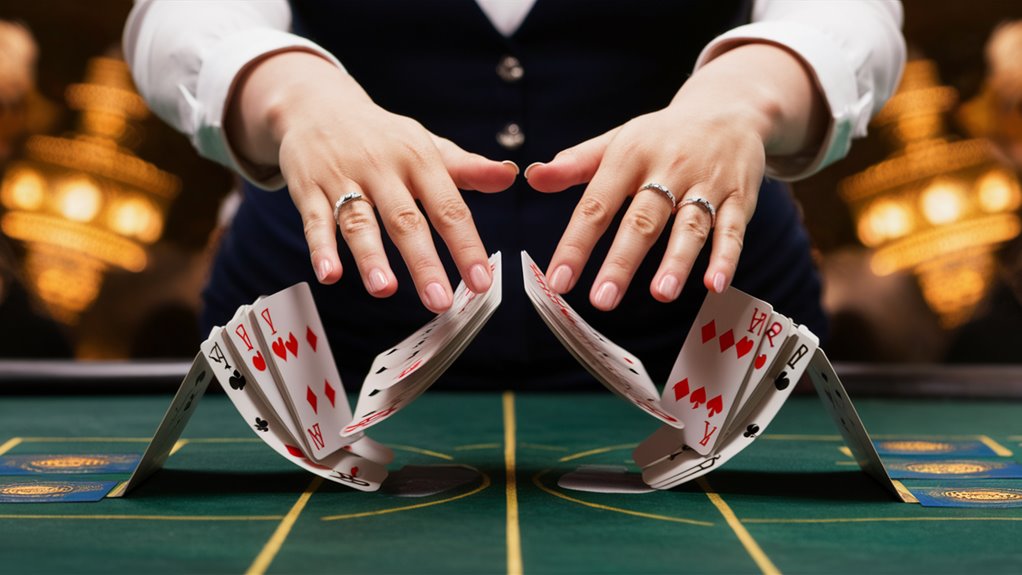The Science of Betting: How it Changes Your Brain and Choices

How Your Brain Likes Wins
Betting sets off strong brain changes much like a drug does in your brain’s win system. When you bet, the part that feels happy throws out lots of dopamine, making you feel good and making you want to bet more. How to Reserve a Karaoke Room Like a Pro
Brain Change and How You Think
The brain part that says stop, key for smart choices, is less active when you bet. This drops how it works and leads to:
- Less joy from everyday things
- New ways of thinking tied to money choices
- Less good at seeing risks in daily life
Feelings and Acts Change
More work in the fear and feel part leads to:
- Stronger wanting to bet
- More likely to take risks
- Harder time controlling feelings
Healing Through Brain Change
Your brain can heal itself, which gives hope. Based on science, ways to help:
- Fix normal dopamine work
- Make the ‘say no’ brain part stronger
- Build better ways to make choices
Stop the Repeat
Knowing these brain tricks helps with:
- Seeing what makes you gamble
- Starting good plans that work
- Making plans that keep getting better
How Your Brain Likes Wins in Betting
The Brain and Win Science
The brain’s win system is key in why you bet, throwing out dopamine, a thing that makes you happy and makes you go. When you bet, key parts of your brain light up, much like they do when you use drugs or have natural win moments.
Getting Ready and Dopamine
Getting ready for wins is a big part of why betting pulls you in. Just thinking of a win makes you get dopamine even before knowing if you win. This is why you feel a big kick when you might win money or make a bet.
Brain Changes and How You Like Things
Brain pictures show that a lot of betting changes how your brain’s win paths work. These changes cause:
- Less joy from things that are not betting
- Stronger wants tied to betting
- New brain paths that change how you react
Win by Chance and Stick to It
The chance win thing makes betting really stick, known as very strong in keeping you coming back. This way messes with your brain’s learning parts, making you keep wanting to bet even when you lose a lot of money.
Long Brain Changes
Lot of betting makes:
- Your win path work different
- Strong wants for betting stuff
- Less happy by other good things
- Long time changes in how you choose
How Dopamine Changes Betting Risks
Dopamine’s Work in Choices
Dopamine, a key brain thing, really shapes how you get happy and how you choose. Science shows that dopamine moves change how you think of odds and choice results when you bet.
Dopamine Not Right in Big Bettors
Reports show that big bettors show clear signs of dopamine not working right, making it hard to look at risks right. The part that sees risk does less in win guessing, but oddly throws out more dopamine when you bet. This messed-up dopamine work makes the win system dull, making everyday fun hard and pulling people to riskier bets. Foam & Flicker Slots
Brain Learning and Risk Moves
Dopamine signals help keep brain paths tied to betting acts strong. This brain thing makes links stronger between hoping for wins and taking risks, making you keep wanting to bet even when you know it’s bad.
Key Brain Tricks
- Getting ready for wins makes dopamine jump
- Risk looking changes with dopamine not right
- Brain path strengthening keeps betting acts going
- Act loops keep bad ways going
- How the risk part works changes how you choose
Brain Paths and Betting Moves

The Brain’s Win Path When Betting
Brain pictures show deep networks working when you bet. These networks deal with wins, feels, and choices all at once.
Key Brain Parts and Jobs
The dopamine road carries dopamine from one brain part to the happy part, making the rush of joy when you might win big. 메이저사이트
Brain Changes and How You Act
The thinking mix-up part is key in watching fights between quick wins and long results. More betting really changes these brain roads, making less action in parts that say stop, which are key for smart choosing. This switch in brain paths tells why it’s hard to stop betting as brain paths get more set with more betting.
Big Brain Spots in Betting
- Happy part: Deals with wins
- Fear part: Handles how you feel
- Stop part: For smart choosing
- Risk-look part: Checks risk against joy
- Thinking mix-up part: Watches fights in choice-making
Not Just in Casinos: Brain Changes from Betting
Brain Tricks in Choosing
Brain ways shape how you act in lots of spots, not just in casinos. The dopamine-led win system, once it gets going by betting, changes how you make choices in work and at home. This shows in money plans, risk looking, and daily choice ways.
Thinking Mistakes and Spreading Effects
Backed by research, how wrong thoughts from betting spread into bigger areas of judging. Odd thinking of odds can change big work choices and money moves. The brain’s changed win paths disturb normal waiting for later wins, making it hard to pick long-term good over quick joy.
Social and How You Act Changes
Brain changes from betting can deeply change how you get along with others by changing win paths. Your win system might show less action to normal fun things, like hanging out or winning at something. These brain changes redo how you make choices, changing how you look at risks, from driving to job decision-making.
Long Brain Changes
Betting-made changes in brain paths have lasting effects on:
- Money choosing
- Risk looking
- How you get along with others
- Work judging
- Day-by-day act choices
Money Choices Under Stress: A Brain Look
Brain Moves with Money Stress
Brain work ways during high-stakes money choices show key insights into choosing under stress. The thinking mix-up part and fear parts show clear moves when you face big money stress, greatly changing how you judge and pick.
The Brain’s Win Path in Money Choices
The brain’s win path gets more action during stressed money spots, making a tough mix of smart and feel-based moves. Stop-part work drops while the feel system works more, often leading to more risk acts and worse money thinking.
Impact of Quick Timing on Choosing Well
Quick timing changes how the brain works, hitting:
- Fear part making you see more danger
- Memory part cutting down on remembering experiences
- Dopamine pushing you to seek wins



